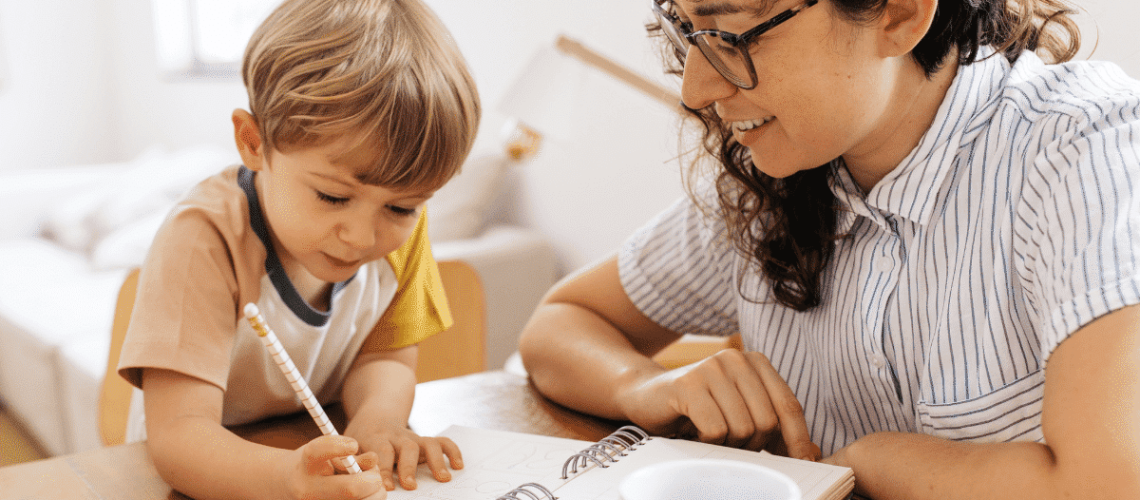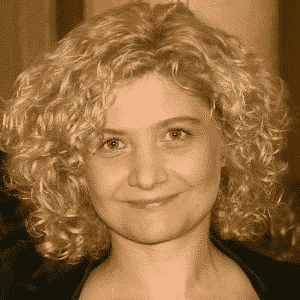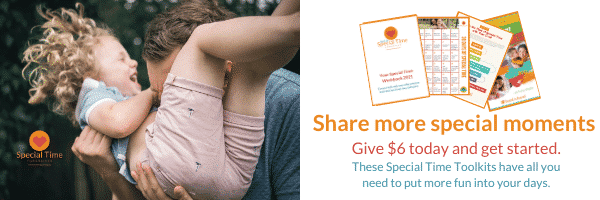When my husband got a job offer in Germany, we needed to relocate. It felt a real leap of faith and we kept wondering how big of a challenge the move was going to be for us as a family.
One thing that concerned us was kindergarten access because we heard places were difficult to find. The reality proved much better, however, and securing a place was a straightforward process.
But we still had one major problem: none of us spoke the language.
As a first step, I enrolled myself in a German class. The teacher was gifted with talent, humor and, most importantly, kindness. He loved people for who they already were, he saw the best in them and helped them see that in themselves. With this foundation in place, he started building on it, from the very point his students already shone.
I guess he was able to fully empathize because he knew as well as we did how difficult it was to speak a language you have never encountered before. He came from another country, just like the rest of us, his students. His country was Iraq, my teacher was a Kurd.
Putting connection first helped us with the language challenge
When we were trying to find a teacher for my son, I thought about my teacher first and actually asked him to teach my son. He came back with a very interesting proposal: his daughter, who was fourteen years old at that time, was willing to help.
We enthusiastically agreed and, a day later, we met his daughter.
Our son, who only spoke Romanian then, seemed a bit puzzled as he got to know his new teacher. The girl noticed and smiled warmly in return. She told him softly, “I do not speak German at home either. Would you like to hear what my language sounds like?”
I translated her question to my son and, as he nodded in agreement, the girl said something musical in her language.
“Now it is your turn,” she invited him. “Would you tell me something in your language?”
Shy, and still trying to avoid looking directly at the girl, my son said something in Romanian.
She answered him in Kurdish and, as I figured out that they had already found a way to connect, despite all apparent barriers, I left them.
Not long after, the room was filled with laughter and then the sound of German words, that the two children, born in different parts of the world, were pronouncing together.
How Special Time helped my child face and have fun with his language lessons
During the days that followed, my son kept asking for just one specific game to play for Special Time: “The German Lesson.”
To learn about Special Time, try our complete Special Time Toolkit, with guide, planner, workbook, prompts and checklists. It's yours when you give a $6 or more gift to support Hand in Hand Parenting's Special Time Fundraiser. Give here.
He suggested this role play, where I was the student, and he was the teacher. “Go on, say something in your language, I am curious what that sounds like!” he said, smiling mischievously at me.
And I answered in what I used to call, as a child, “the language of the birds,” a made up language of mine.
“Ve-pe-ry-py well-p-well,” I said. “How-pow are-pare you-pou do-po-ing-ping?”
He roared with laughter.
“Ahh, Mommy, you are so silly!” he said. Then he grew authoritative. “No worries, I will teach you.”
And then he started to teach me words in German.
When he did not know the words, he improvised with courage and creativity, and I tried to repeat what he said, sometimes keeping a straight face, and other times adding my silly bird-sounds to the words that I was learning from him.
The sense of safety that we built, day after day, while doing Special Time, got stronger and stronger. He used this time to dissolve his worries, fears and hesitations, to find courage and strength.
One week later, my son was looking forward to his young German teacher returning.
And she did. I saw that she, like her Dad, chose to connect first, meeting my boy at a place he already shone so that she could build a solid bridge into new and unknown territory.
How does Special Time help boost children's confidence?
I see this time as a gift that I offer both to myself and to my son. It is a time where I can give him my undivided attention and connection. A time that is sheltered from any interruptions or distractions. It's a time where we laugh and play, tune into each other, and, as you see here, it can be a time to work on challenges or obstacles.
I clearly define how long our Special Time will be before getting started. This is not because my availability to be with my child has to be timed, but because this type of intensive focus simply cannot be maintained indefinitely. Go too long and thoughts start running through my head, my to-do-lists will keep popping-up, the telephone rings, or the cake starts burning in the oven.
When I set this reasonable limit during this time, I turn into a giant YES person for my child: anything he asks for is then possible, my son is then in charge of our relationship and I wholeheartedly follow him, really seeing him for the awesome person that he is and taking delight in his presence and choices.
Special Time is one of my favorite Hand in Hand tools because it can provide a great safe space for kids to test ideas, play with fears and experiment with things that are happening in their lives.
Just as my child did with his German class. He used that time to roleplay, get comfortable and even get intrepid with his new challenge.
Does your child ever work on new experiences or challenges in Special Time with you?
All you need to start Special Time and help your child's confidence
In Special Time you set aside some time—from 3 minutes to an hour—and your child lets you know exactly what they need for you to reach them.
Get everything you need to get started with this transformative tool with a $6 donation to Hand in Hand Parenting's Special Time fundraiser.
You'll receive guides, checklists, planners and prompts in the toolkit we send you as a thank you for your gift.
Become part of the movement putting kindness, connection and laughter at the heart of parenting. Give now.


